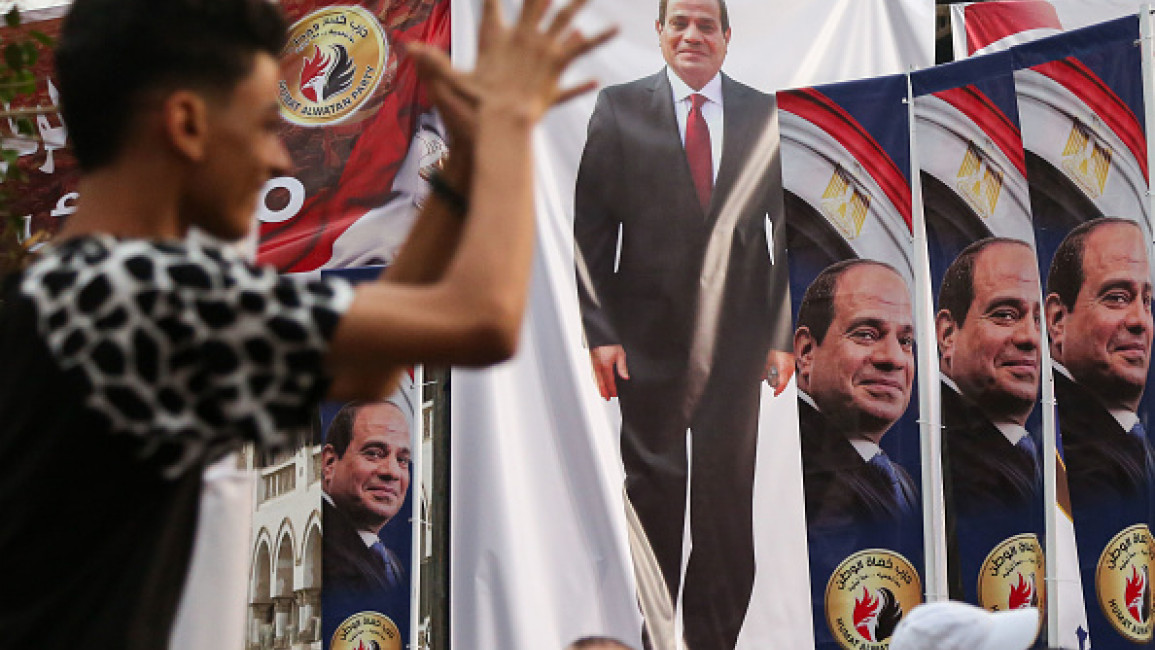Four presidential candidates, including Sisi, announced for Egypt's upcoming elections
Three presidential candidates have been permitted to run against Egypt's incumbent President Abdel Fattah al-Sisi in the coming elections, due on 8 December this year, after they have met the required stipulations, a vote viewed by analysts as "a foregone conclusion."
The country's National Elections Authority (NEA) announced the final list of candidates on Thursday, 8 November, allowing the four candidates to hold a maximum of one month of electoral campaigns.
Other than Sisi, Farid Zahran, head of the opposition Social Democratic Party, Abdel-Sanad Yamama, head of the country's oldest liberal party Al-Wafd, and Hazem Omar, head of the People's Republican Party will run for the country's most prestigious political post, according to the agency.
Every rival has been given an electoral symbol. Sisi, already seeking a third term in office, chose the star, while Zahran selected the sun, Yamama picked the palm tree, and Omar got the sign of the ladder.
Each of the four candidates has been allowed to open a bank account at one of two of the country's main national banks for campaigning expenses.
On its part, NEA will monitor the deposits made into each candidate's bank account and the donations received for their respective campaigns, provided that each does not spend over 20 million EGP (about US$650,000) and 5 million EGP in case of a runoff is held.
Two other candidates had earlier withdrawn from the race for not meeting the required conditions, including Ahmed Tantawi, ex-MP and journalist, and Gameela Ismail, Al-Dostour party chairwoman and former journalist.
The elections are not expected to be free or fair as previous polls held since Sisi's 2013 military coup have given improbable majorities for Sisi and have been marked by the arrest of rival candidates.
"None of the three candidates stand any chance against Sisi in elections. The presidential contest is nothing but a façade, like the case with previous ones. Even the candidates know this for a fact. Sisi has the army, the judiciary, and to a great extent, the interior ministry behind him," a prominent political analyst told The New Arab on condition of anonymity, fearing for their safety.
"The government is known to have approved who will run against Sisi as no possible replacements have been allowed to join the competition before. But they need to fool themselves by pretending there is a poll while it is actually nothing but a foregone conclusion," the analyst added.
Former presidential hopeful Tantawi was referred to a criminal trial this week for allegedly circulating unauthorised endorsement forms for Egypt's upcoming elections, among other charges, in addition to his electoral campaign manager and 21 other campaigners who had been detained earlier.
The Egyptian constitution stipulates that presidential candidates must secure endorsements from 20 MPs or 25,000 registered voters in at least 15 provinces, with a minimum of 1,000 endorsements from each province, which Tantawi failed to garner.
"Sisi just punishes Tanatwi for attempting to challenge him even though both men know the former MP didn't stand a chance in the first place," the analyst concluded.
The elections will be held amid severe socio-economic instability, economic mismanagement, and ongoing corruption issues in Egypt.
This year's election comes amid severe socio-economic instability and the worst crackdown on human rights and media witnessed in decades.
Last October, the Central Bank of Egypt imposed exchange rate flexibility, allowing the value of the Egyptian pound to be regulated by market forces. The change aimed to save Egypt's already ailing economy after securing a US$3 billion loan from the International Monetary Fund (IMF).



